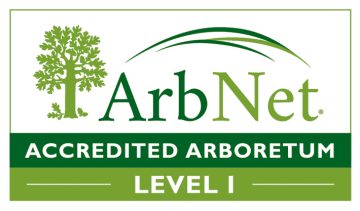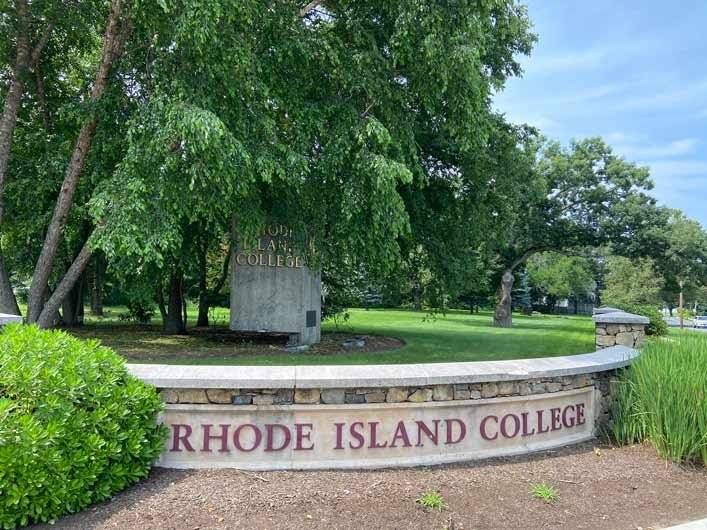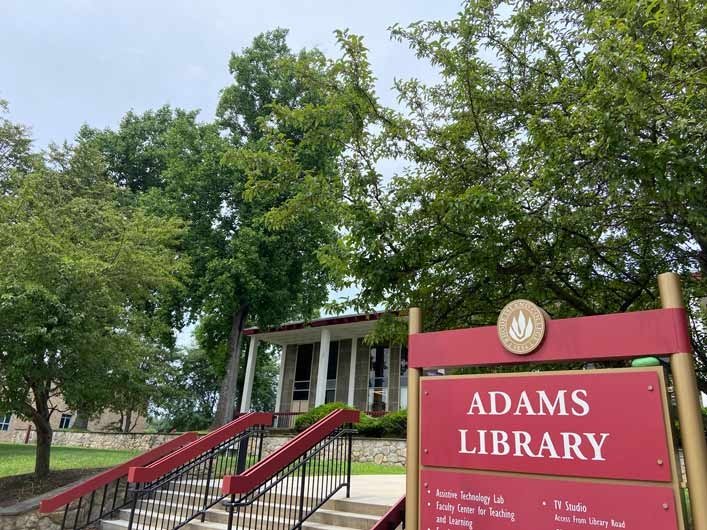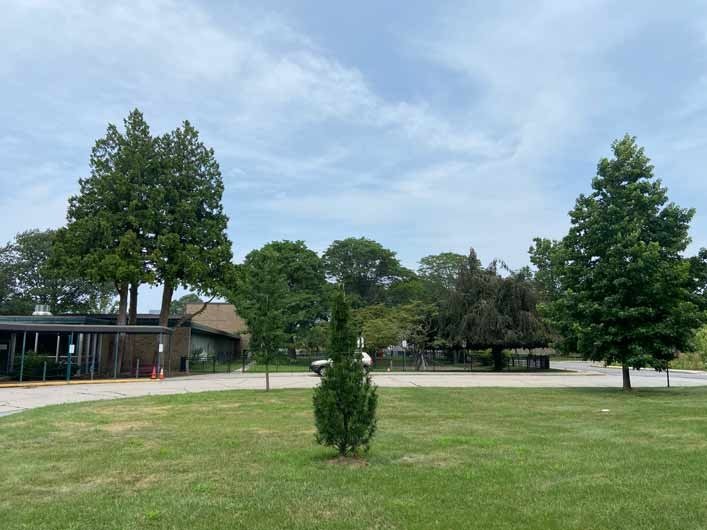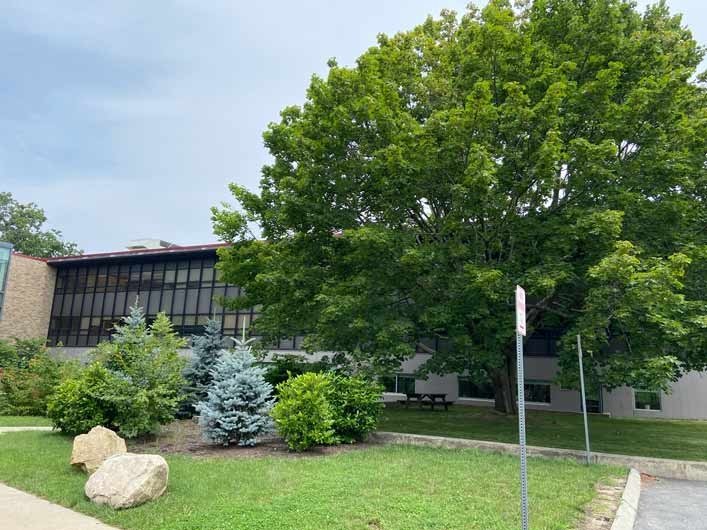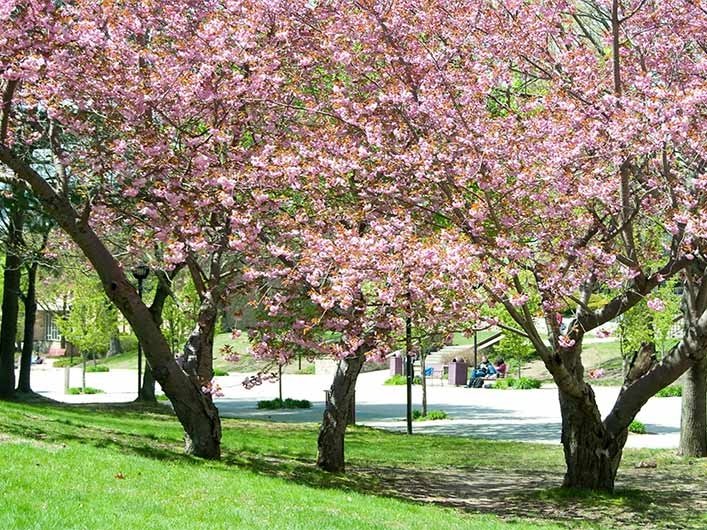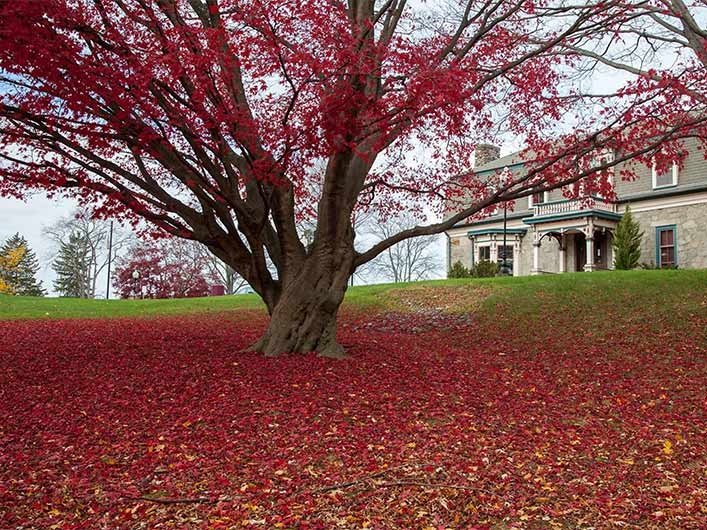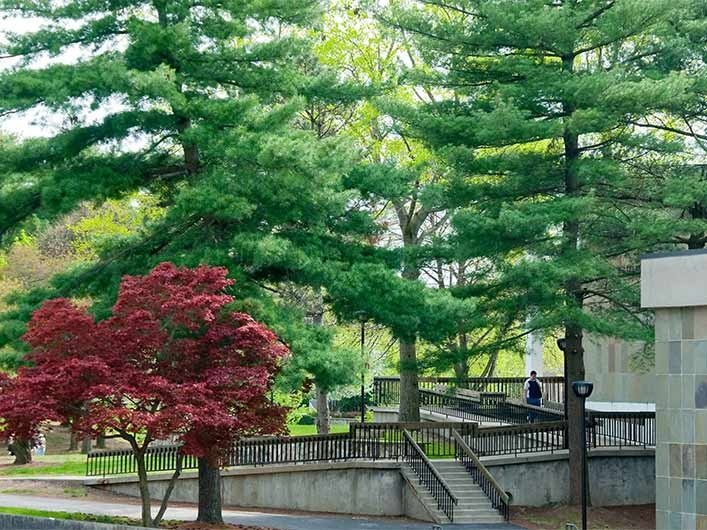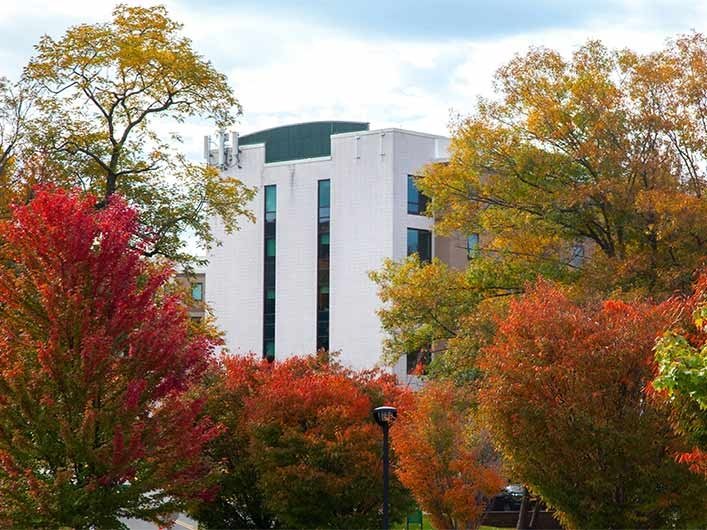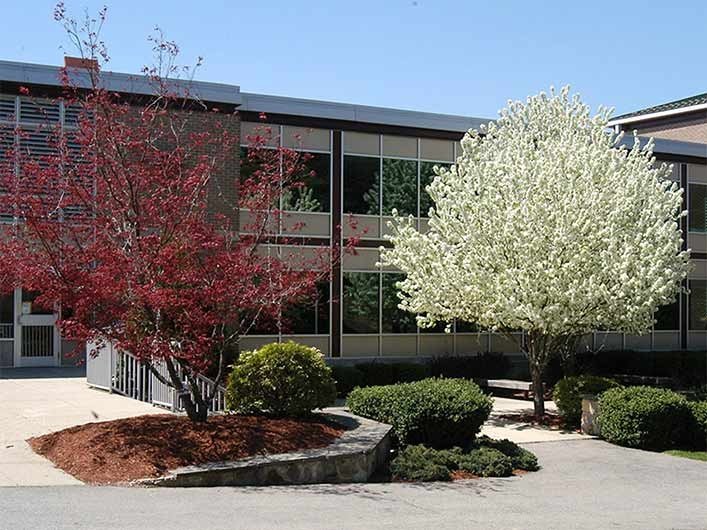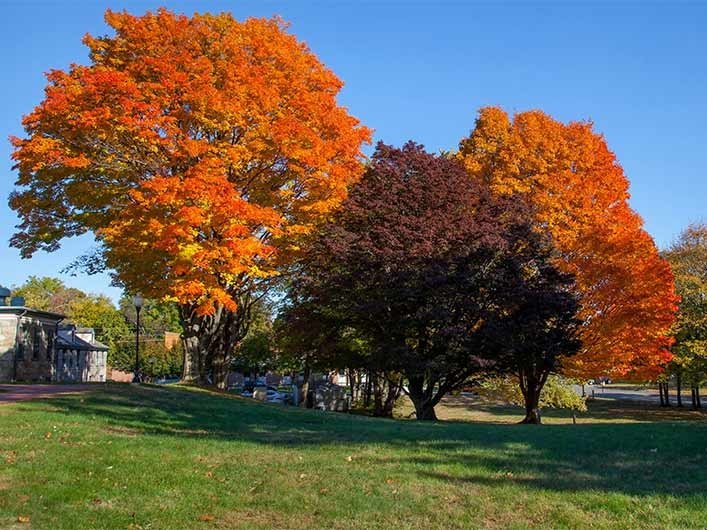The Department of Facilities and Operations is proud to announce RIC's Arboretum Accreditation. With careful planning, ongoing maintenance and care, and institutional prioritization we were able to reach this benchmark. As an official arboretum, the campus can provide a welcoming environment for our community, while also encouraging the general public to visit the college.
Level I Arboretum Accreditation
Rhode Island College has been awarded a Level I ArbNet Arboretum Accreditation through The Morton Arboretum.
An arboretum is defined as a place where trees and plants are grown for scientific and educational purposes, and a Level I Arboretum Accreditation is bestowed upon an arboretum having the following components:
ArbNet and The Morton Arboretum
The ArbNet Arboretum Accreditation Program is the only global initiative to officially recognize arboreta at various levels of development, capacity, and professionalism.
Because of our ArbNet Level 1 Accreditation, Rhode Island College is now recognized as an accredited arboretum in the Morton Register of Arboreta, a database of the world’s arboreta and gardens dedicated to woody plants.
Rhode Island College Morton Register Listing
How We Met all Level 1 Criteria
With these arboretum components in place at RIC, and with each component's details presented to ArbNet in this way, RIC met the prescribed ArbNet Level 1 stipulations and our Level 1 Arboretum Accreditation was granted.
Our Plan
Rhode Island College has been home to trees for as long as it has been an institution. We are a public college and our arboretum’s primary goal is to provide a welcoming and beautiful space for both the campus community and the general public. Our grounds staff has a designated arbor budget used to keep the trees thriving.
Our Organizational Group
Rhode Island College’s Facilities and Operations Department oversees the arboretum. The grounds staff is responsible for upkeep and are overseen by the Director of Facilities and Operations.
Our Staff and Volunteers
- Greg Gammell: Director of Facilities and Operations, Arborist
- Matthew Richardson: Associate Director of Facilities and Operations / Grounds, Arborist
- Jim Murphy: Assistant Director of Facilities and Operations, Sustainability & Logistics
- Dr. Glenn Rawson: Professor of Philosophy, Rhode Island Tree Steward
- Dragan Gill: Associate Professor, Reference Librarian, Rhode Island Tree Steward, Providence Tree Keeper
- Grounds Staff (maintaining the arboretum with a designated arbor budget)
- RIC Environmental Club: 8-10 students
Our Public Dimension
As a state college, the campus and many events held on campus are open to the public. The campus has plenty of parking and walkways in order for people to access and appreciate the trees on campus. There is an annual Arbor Day Event where a new tree is planted. Numerous public groups visit the campus for campus events and programs including the Boy Scouts, local dance schools, school summer camps, high school college prep programs, sporting events, music and theater events, as well as various public speakers and presenters.
Read our Complete Arboretum Master Plan

